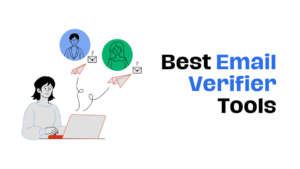Accounting challenges can be daunting for businesses of all sizes. They require careful attention and expertise.
Running a successful business isn’t just about selling products or services. It’s also about managing finances accurately. Accounting is a critical part of this process. Yet, it often presents numerous challenges. From keeping track of expenses to ensuring compliance with ever-changing regulations, the hurdles are many.
Small mistakes can lead to significant financial issues. For many, these challenges can feel overwhelming. But understanding them is the first step to overcoming them. In this blog post, we will explore common accounting challenges and how to address them effectively. Stay tuned to learn how you can navigate these financial obstacles with confidence.
Table of Contents
ToggleIdentifying Common Accounting Challenges
Every business faces unique accounting challenges. Understanding these challenges can help in finding effective solutions. Identifying common accounting challenges is the first step to better financial management.
Cash Flow Management Issues
Many businesses struggle with cash flow management. It’s a common issue that can lead to serious problems. Poor cash flow management can result in missed opportunities and financial strain.
Here are some common causes of cash flow issues:
- Late payments from clients
- Unexpected expenses
- Poor budgeting
Effective strategies to improve cash flow include:
- Implementing stricter payment terms
- Regularly reviewing expenses
- Creating a detailed budget
Complex Tax Regulations
Another major challenge is dealing with complex tax regulations. Tax laws vary and can change frequently. This makes it hard to stay compliant.
Some issues businesses face with tax regulations include:
- Understanding different tax rates
- Keeping up with tax law changes
- Filing accurate tax returns
To manage these challenges, consider:
- Hiring a professional accountant
- Using accounting software
- Staying updated on tax law changes

Credit: www.netsuite.co.uk
Implementing Effective Solutions
Implementing effective solutions in accounting can be challenging. Many businesses struggle with complex financial tasks. But there are ways to make accounting easier. Effective solutions can save time and reduce errors. Let’s explore some key methods to simplify accounting processes.
Automated Accounting Software
Automated accounting software can transform financial management. It handles repetitive tasks, saving time for businesses. These tools can track expenses, generate invoices, and manage payroll. Automation reduces human errors and improves accuracy.
Many software solutions offer user-friendly interfaces. This helps non-experts manage their finances with ease. Some popular options include QuickBooks, Xero, and FreshBooks. These tools can integrate with other business systems. This ensures seamless financial operations.
| Software | Main Features |
|---|---|
| QuickBooks | Expense tracking, Invoicing, Payroll management |
| Xero | Bank reconciliation, Inventory management, Financial reporting |
| FreshBooks | Time tracking, Client invoicing, Expense management |
Outsourcing Accounting Services
Outsourcing accounting services can be a smart move. It allows businesses to focus on core activities. External experts handle financial tasks more efficiently.
Outsourcing provides access to specialized knowledge. This can lead to better financial decisions. It also helps in compliance with regulations. Many firms offer flexible packages to suit different needs.
- Cost-effective solutions
- Access to expert advice
- Scalable services
Common outsourced services include bookkeeping, tax preparation, and financial analysis. By outsourcing, businesses can reduce overhead costs. It also minimizes the risk of financial errors.
Maintaining Accurate Financial Records
Maintaining accurate financial records is crucial for any business. It ensures that financial statements are reliable and helps in making informed decisions. This section will discuss the importance of regular audits and efficient data entry practices in maintaining accurate financial records.
Regular Audits
Regular audits play a vital role in keeping financial records accurate. They help identify discrepancies and ensure compliance with financial regulations. An audit involves a thorough examination of financial statements and other relevant documents.
Conducting regular audits can uncover errors and prevent fraud. It ensures that all financial transactions are recorded correctly. This process also provides confidence to stakeholders about the accuracy of the financial information.
Here are some benefits of regular audits:
- Detecting and correcting errors
- Ensuring compliance with laws
- Improving financial transparency
Efficient Data Entry Practices
Efficient data entry practices are essential for maintaining accurate financial records. Proper data entry ensures that all transactions are recorded in a timely and precise manner. Errors in data entry can lead to significant problems.
Here are some tips for efficient data entry:
- Use accounting software to automate entries
- Regularly review data for accuracy
- Train staff on proper data entry techniques
Implementing these practices can reduce errors and save time. It also ensures that financial records are up-to-date and accurate. This is crucial for making sound financial decisions.
| Benefit | Description |
|---|---|
| Accuracy | Ensures all entries are correct |
| Efficiency | Saves time and reduces errors |
| Compliance | Meets legal and regulatory standards |
Enhancing Financial Reporting
In the world of accounting, accurate financial reporting is crucial. Businesses rely on clear and precise data for decision-making. Enhancing financial reporting can streamline operations and provide better insights. Let’s explore some strategies to improve financial reporting.
Real-time Reporting Tools
Real-time reporting tools are essential for modern businesses. They provide instant access to financial data, helping managers make informed decisions quickly. These tools can integrate with various accounting software, ensuring seamless data flow. Here are some benefits:
- Immediate insights into financial performance.
- Better tracking of cash flow and expenses.
- Enhanced accuracy and reduced errors.
Using real-time reporting tools can save time and reduce the workload for accountants. It also ensures that the data is always up-to-date. This can be a game-changer for businesses of all sizes.
Clear Financial Statements
Clear financial statements are vital for stakeholders. They provide a transparent view of a company’s financial health. To enhance clarity, follow these tips:
- Use simple and consistent formatting.
- Include detailed notes and explanations.
- Avoid jargon and use plain language.
Presenting financial data in a clear and understandable way builds trust. It helps stakeholders make well-informed decisions and fosters better communication. Clear and understandable financial data also allows stakeholders to accurately assess the organization’s performance and risks, which is crucial for strategic planning and resource allocation. Additionally, it enables stakeholders to uncover market insights and trends that can inform future business strategies and opportunities for growth. This transparency in financial reporting enhances the organization’s credibility and reputation within the industry and among investors.
Here’s a simple table to illustrate key components of a clear financial statement:
| Component | Description |
|---|---|
| Balance Sheet | Shows assets, liabilities, and equity. |
| Income Statement | Details revenues and expenses. |
| Cash Flow Statement | Tracks cash inflows and outflows. |
Ensuring these components are clear and detailed enhances the overall quality of financial reporting. This helps businesses stay compliant and make strategic decisions.
Managing Budget Constraints
Every business faces the challenge of managing budget constraints. Keeping expenses in check while striving for growth can be tough. This section explores effective ways to manage budget constraints in accounting. We will discuss Cost Reduction Strategies and Prioritizing Financial Goals.
Cost Reduction Strategies
To manage budget constraints, businesses need to implement cost reduction strategies. Here are some practical tips:
- Automate Processes: Use software to automate repetitive tasks. This saves time and reduces labor costs.
- Negotiate with Suppliers: Seek better terms or discounts from suppliers to cut costs.
- Reduce Overhead: Cut down on unnecessary expenses. Examples include utility savings or remote work options.
- Outsource Non-Core Activities: Outsource activities like payroll or IT. This can be more cost-effective.
Implementing these strategies can help reduce costs and manage budget constraints more effectively.
Prioritizing Financial Goals
Setting and prioritizing financial goals is crucial. It helps in resource allocation and achieving long-term success. Consider these steps:
- Identify Key Objectives: Determine what is most important for your business. Examples include increasing revenue or reducing debt.
- Allocate Resources: Distribute your budget based on your priorities. Ensure critical areas get sufficient funding.
- Monitor Progress: Regularly check your financial performance. Make adjustments as necessary to stay on track.
Prioritizing financial goals ensures that resources are used effectively. This helps in managing budget constraints.

Credit: www.consultancellc.com
Navigating Compliance Requirements
In the realm of accounting, navigating compliance requirements is a crucial task. Businesses must ensure adherence to financial regulations and implement effective internal controls. This can be challenging, but it is essential for maintaining financial integrity and avoiding legal issues.
Adhering To Financial Regulations
Adhering to financial regulations is essential for all businesses. These regulations are set by government bodies to ensure transparency and fairness in financial reporting.
Businesses must stay updated with the latest changes in financial laws. This includes tax laws, reporting standards, and disclosure requirements.
Non-compliance can lead to severe penalties. This can damage a company’s reputation and financial standing.
Here are a few steps to ensure compliance:
- Regularly review updates from regulatory bodies.
- Train staff on the importance of compliance.
- Use accounting software that aligns with current regulations.
Implementing Internal Controls
Implementing internal controls helps safeguard a company’s assets. It ensures accuracy in financial reporting and prevents fraud.
Effective internal controls include policies and procedures. These should be designed to detect and prevent errors or irregularities.
Internal controls can be categorized into two types:
| Preventive Controls | Detective Controls |
|---|---|
| Segregation of duties | Regular audits |
| Authorization of transactions | Reconciliation of accounts |
| Access controls | Variance analysis |
Internal audits play a crucial role in this process. They help identify weaknesses in the control system and suggest improvements.
To sum up, navigating compliance requirements involves adhering to financial regulations and implementing internal controls. This ensures accuracy, prevents fraud, and maintains financial integrity.
Training And Development
In the world of accounting, training and development are crucial. Accountants face many challenges. Staying updated is vital. Continuous learning helps them tackle these challenges. Let’s explore two important areas: Continuous Professional Education and Skill Development Programs.
Continuous Professional Education
Accountants need to keep learning. This is where Continuous Professional Education (CPE) comes in. CPE ensures that accountants stay current. They learn about new regulations and standards.
Here are some key points about CPE:
- Mandatory for many certifications: Many accounting bodies require CPE. This helps maintain professional standards.
- Variety of formats: CPE can be online courses, seminars, or workshops.
- Topics covered: Includes tax updates, auditing standards, and financial reporting.
CPE helps accountants remain competent. It ensures they provide the best service to clients.
Skill Development Programs
Skill development programs are another key area. These programs help accountants develop new skills. They also enhance existing ones.
Some benefits of skill development programs include:
- Improved technical skills: Such as advanced Excel or accounting software.
- Enhanced soft skills: Communication, problem-solving, and teamwork.
- Specialized knowledge: Industry-specific knowledge or forensic accounting.
These programs are often interactive. They involve practical exercises and real-world scenarios. This makes learning more effective. Accountants can apply these skills in their daily tasks. This improves their efficiency and effectiveness.
Leveraging Technology
In today’s fast-paced business world, leveraging technology is essential for accountants. New tools and software help overcome many accounting challenges. These innovations make work easier, faster, and more accurate.
Cloud-based Accounting Solutions
Cloud-based accounting solutions are changing the way businesses manage their finances. These tools offer many benefits:
- Accessibility: Access financial data from anywhere with an internet connection.
- Real-time updates: See the latest information as soon as it’s entered.
- Cost savings: Reduce costs on IT infrastructure and maintenance.
- Scalability: Easily scale the software as your business grows.
- Collaboration: Work seamlessly with team members and clients in real-time.
Popular cloud-based accounting tools include QuickBooks Online, Xero, and FreshBooks. These platforms offer user-friendly interfaces and robust features. They help businesses stay organized and compliant with financial regulations.
Blockchain For Accounting
Blockchain technology is another innovation transforming accounting. It offers a secure and transparent way to record transactions. This technology has several key advantages:
- Security: Blockchain uses cryptography to keep data safe.
- Transparency: Every transaction is recorded and visible to authorized users.
- Immutability: Once recorded, transactions cannot be altered or deleted.
- Efficiency: Reduce the need for intermediaries and manual processes.
Blockchain can help reduce fraud and errors in financial records. It also streamlines audit processes, making them faster and more accurate. Companies like IBM and Microsoft are exploring blockchain solutions for accounting.
Both cloud-based accounting solutions and blockchain technology are transforming the accounting industry. By adopting these tools, businesses can overcome many common challenges and improve their financial management.

Credit: resourcecenter.infinit-o.com
How Can Centralizing Business Notifications Help Overcome Accounting Challenges for Financial Success?
Centralizing business notifications streamline workflow automation by ensuring that all important financial updates and alerts are collected in one centralized location. This helps overcome accounting challenges by providing real-time access to critical information, allowing for more efficient decision-making and ultimately contributing to financial success. Additionally, centralizing business notifications can also help automate marketing team workflows by ensuring that all promotional updates and campaign alerts are easily accessible to the team. This streamlines the communication process and allows for better collaboration between team members, ultimately leading to more effective marketing strategies and improved results. By centralizing these notifications, businesses can not only streamline their workflow automation for financial updates, but also for marketing initiatives.
How Can Automating CRM Help in Overcoming Accounting Challenges for Financial Success?
Automating your CRM can provide valuable insights into customer behavior, making it easier to track and manage financial transactions. By implementing automate your crm tips, businesses can streamline their accounting processes, reduce errors, and ultimately achieve greater financial success.
Frequently Asked Questions
What Are Common Accounting Challenges?
Common accounting challenges include managing cash flow, staying compliant with regulations, and maintaining accurate records. Businesses also face issues with tax filing and financial forecasting.
How To Manage Accounting Errors?
To manage accounting errors, implement regular audits and use accounting software. Training staff and double-checking entries can also help reduce mistakes.
Why Is Cash Flow Management Important?
Cash flow management is crucial for sustaining business operations. It ensures you have enough funds to cover expenses and invest in growth opportunities.
What Are The Challenges In Financial Forecasting?
Challenges in financial forecasting include market volatility, inaccurate data, and changing economic conditions. Businesses need reliable data and flexible models to forecast accurately.
How Can Overcoming Accounting Challenges Impact Your SEO Strategy for Financial Success?
Overcoming accounting challenges can have a profound impact on your SEO strategy for financial success. By implementing top strategies for seo, such as optimizing your website for relevant keywords and building high-quality backlinks, you can improve your online visibility and attract more potential clients, ultimately leading to financial growth. Additionally, regularly producing high-quality, relevant content can also contribute to better SEO results, as search engines favor websites that provide valuable information to users. By leveraging social media and email marketing to promote your content, you can further increase website traffic and expand your reach to potential clients in the financial industry. By addressing accounting challenges and optimizing your SEO strategy, you can position your business for long-term success and sustainable financial growth.
Conclusion
Overcoming accounting challenges requires dedication and careful planning. Small businesses face unique hurdles. Clear communication and robust software can help. Regular audits ensure accuracy and compliance. Training staff improves efficiency and reduces errors. Stay updated with regulations to avoid fines.
Focus on these strategies to manage your accounting effectively. With effort and the right tools, you can navigate these challenges.






